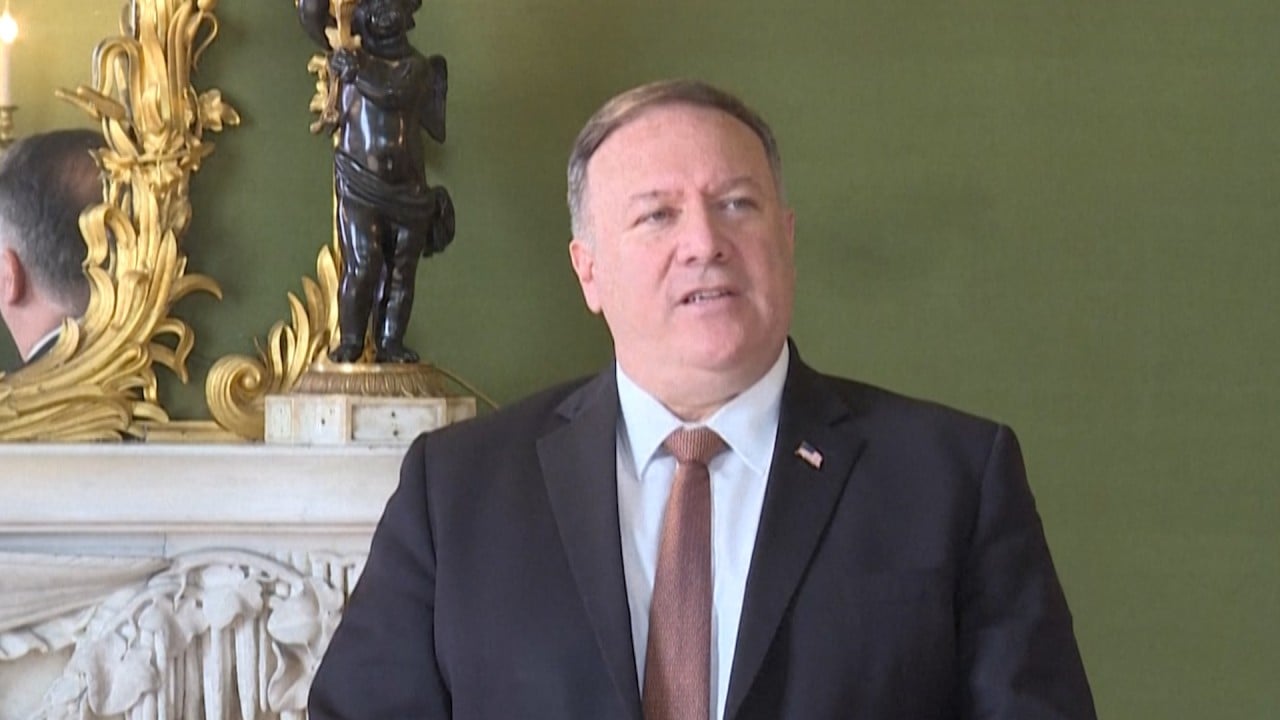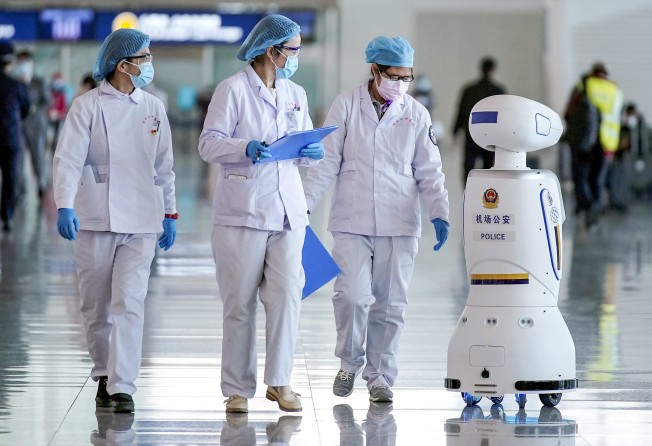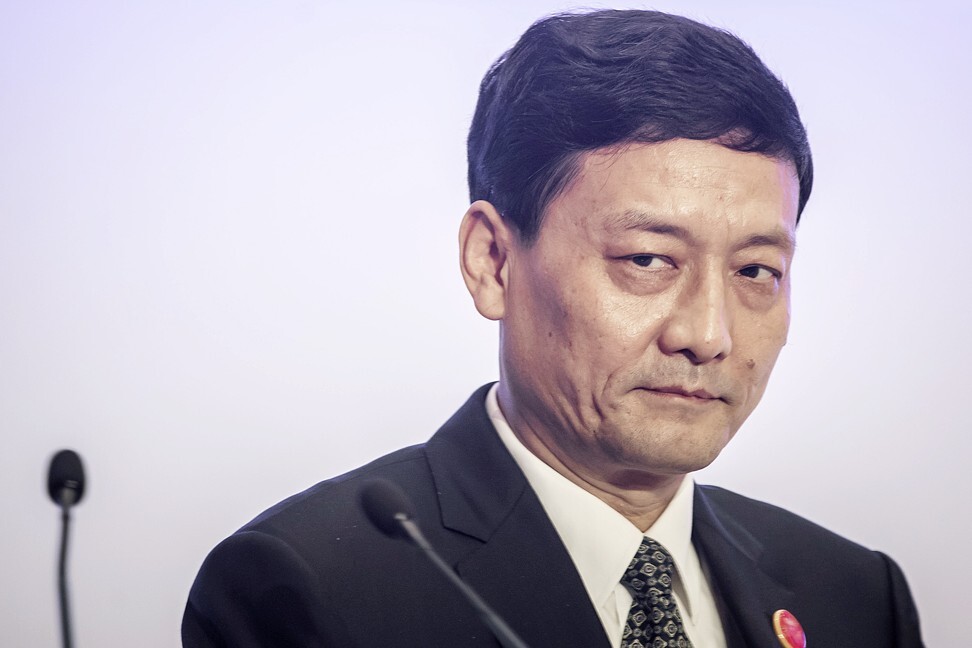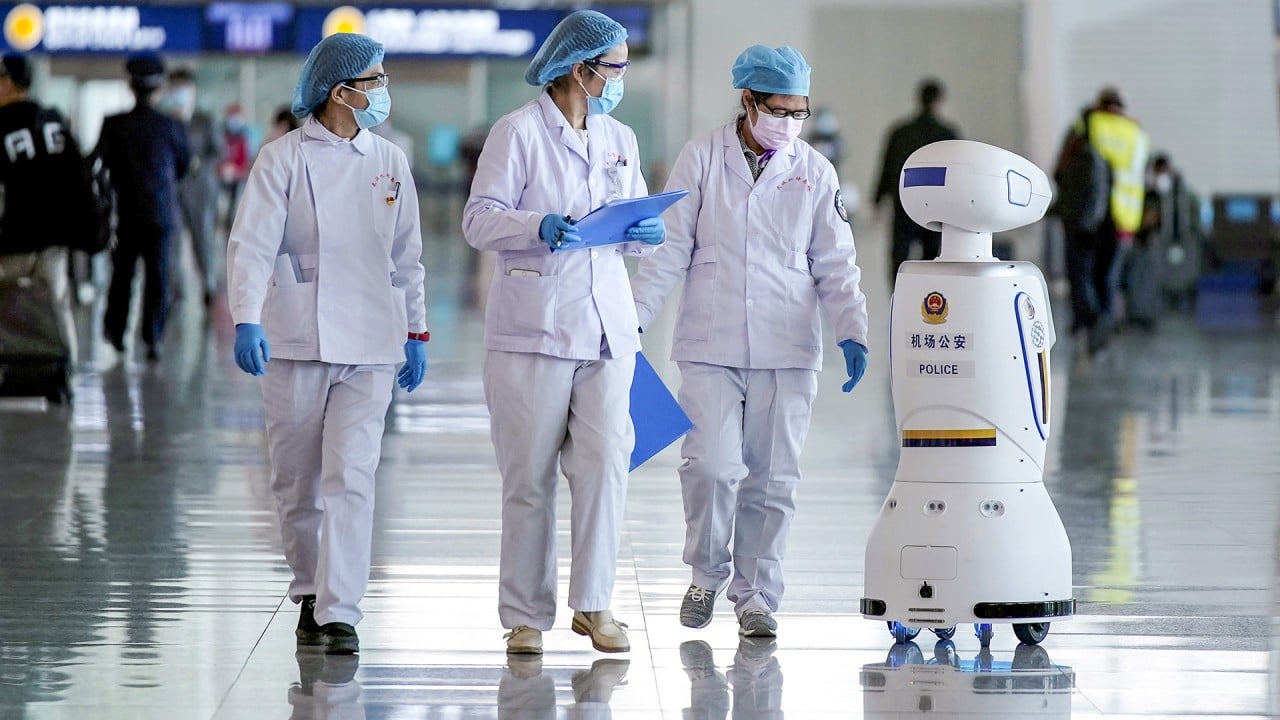
01:17
Pompeo urges all nations to 'push back' against China on visit to the UK

China has appointed a new head of the Ministry of Industry and Information Technology (MIIT), the government agency on the front line of its technology rivalry with the United States.
Xiao Yaqing, who was most recently the head of the State Administration for Market Regulation, will take over from current minister Miao Wei, who has reached the retirement age of 65, according to the official Xinhua News Agency.
Having been appointed MIIT party chief on Friday a day after a meeting of China’s policymaking Politburo, Xiao will be nominated by Premier Li Keqiang and then endorsed by the Chinese parliament to become minister.
The 61-year-old Xiao becomes Beijing’s chief cadre in charge of the country’s industrial and technological development at a time when China is accelerating its domestic development to cut reliance on imported technology and to achieve self-sufficiency amid its rivalry with the US.

01:17
Pompeo urges all nations to 'push back' against China on visit to the UK
MIIT played a key role in the now scrapped “Made in China 2025” plan, which outlined Beijing’s ambitions to dominate 10 cutting-edge technologies, from artificial intelligence to 5G communications and robotics. The plan triggered strong protests from the US and European Union, forcing Beijing to shelve it, at least officially.
China, though, retained its ambition to become self-reliant in key technologies as well as a global technological power.
In his new role, Xiao will have control over key issues, from the licensing of new technologies to electric cars and China’s 5G communication network development.
Xiao was regarded as one of the most capable Chinese technocrats given his track record in turning a loss-making state-owned aluminium plant into a profitable joint-stock corporation by employing a debt-for-equity swap in 2000.
He made his reputation in the global mining industry in January 2008 when his Aluminium Corp of China (Chinalco) joined with US aluminium giant Alcoa to purchase 12 per cent of the London-listed shares of Australian mining firm Rio Tinto, a US$14 billion deal that redefined the iron ore industry landscape and blocked a bid from Australian miner BHP.

The deal was widely seen as a strategic win for Beijing because the potential link up between BHP and Rio would have created an iron ore giant with extensive control over the supply of the key ingredient in steel making, a fact that would have been unfavourable for China as the world’s largest steel maker and therefore largest buyer of the mineral.
Xiao was promoted to deputy general secretary of the State Council, the government cabinet, in 2009.
He was again promoted to the head of China’s State-owned Assets Supervision and Administration Commission, the regulator overseeing the country’s largest state-owned industrial conglomerates, in 2016.

03:07
China’s hi-tech industries capitalise on Covid-19 pandemic health care needs
Xiao championed the concept of “mixed ownership”, using investment funds from the private sector to revitalise the state sector.
In an interview with the South China Morning Post in 2017, Xiao said he believed in market competition, stating that “survival of the fittest is a main theme of market competition”.
In May 2019, Xiao became the head of State Administration for Market Regulation.
In October, Xiao met Apple chief executive Tim Cook, days after the US technology giant came under fire for removing an app that tracked Hong Kong protests following a backlash from Beijing.